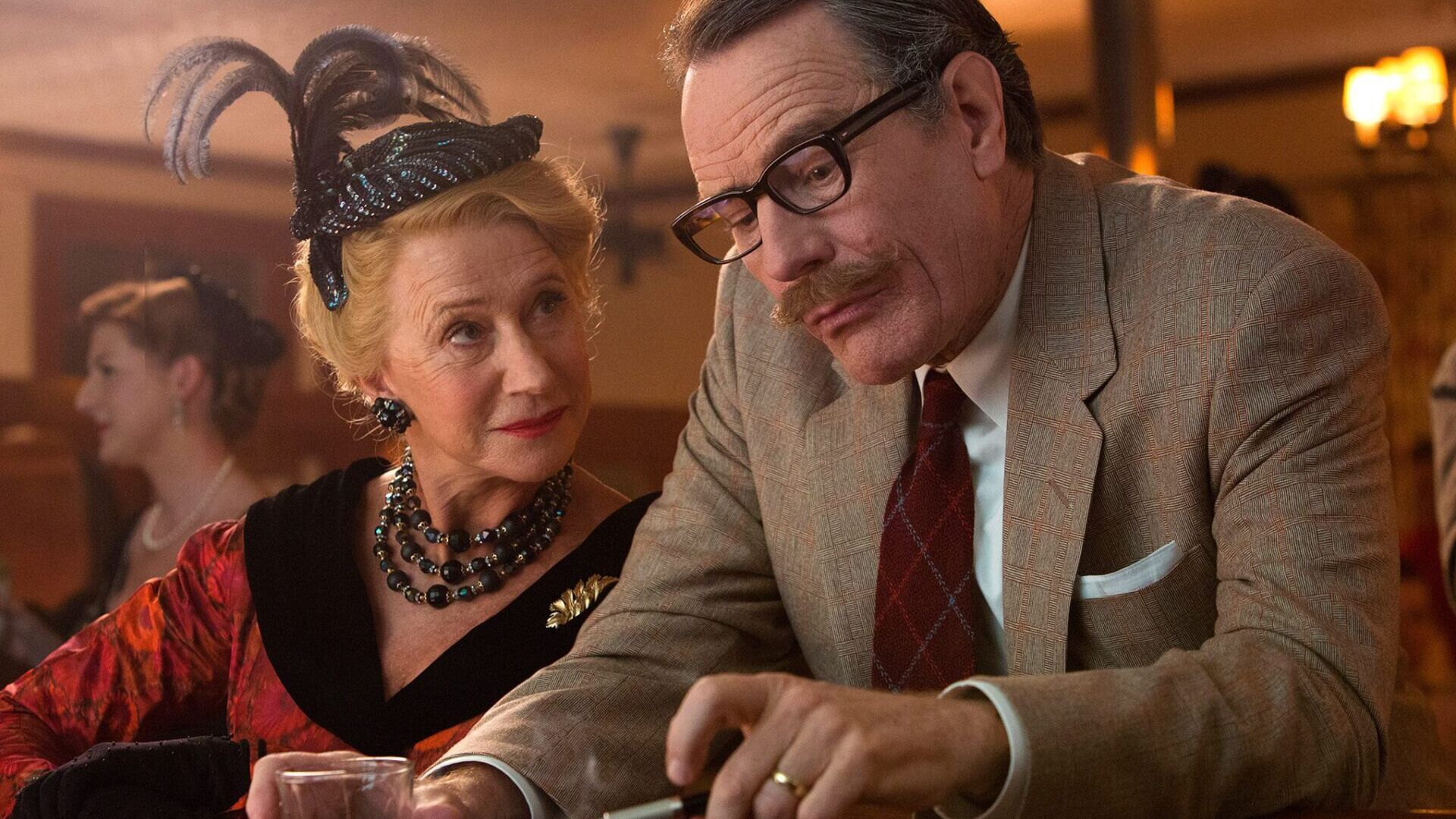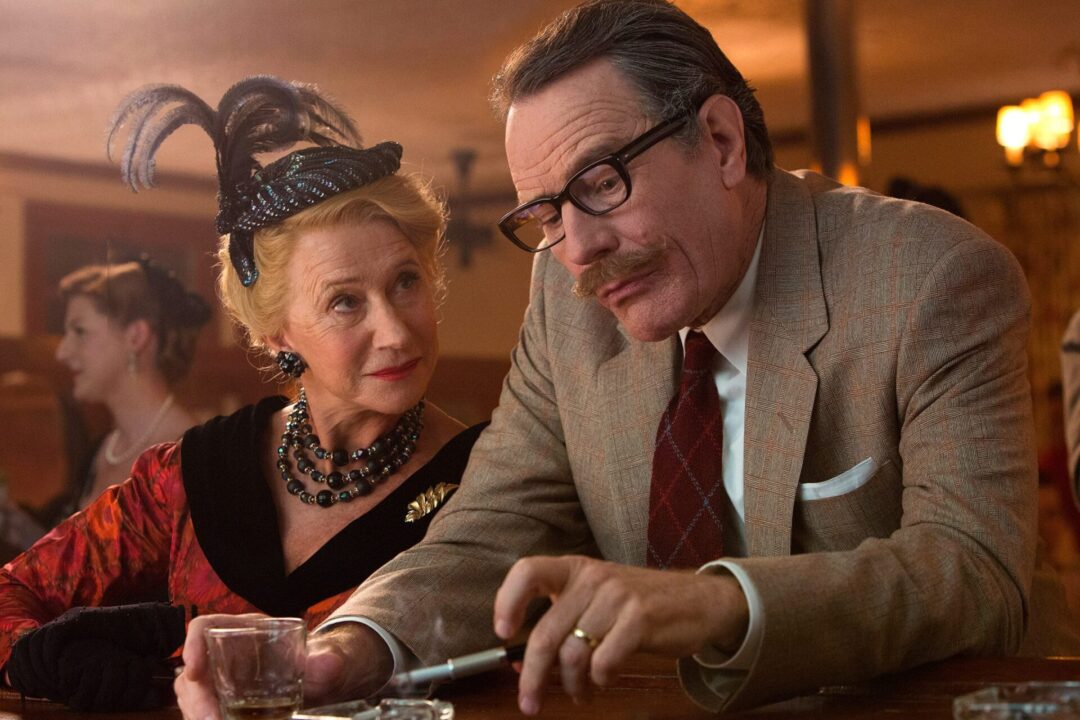The Commies are having a moment in Hollywood. On the heels of the fantastic Bridge of Spies Cold War drama comes Trumbo – an earnest, if not clunky biopic about blacklisted Hollywood screenwriter Dalton Trumbo. It may seem odd that such a foreign concept to many young Americans was a contentious ideological struggle, however, it is one that mirrors a lot of gender and racial politics in the film industry today. Trumbo, the film, almost plays too close to a standard awards-season biopic, though Trumbo, the subject, is an important, if not complicated, figure, that Hollywood can stand to, again, learn from.
The film follows the height of legendary, Academy Award-winning screenwriter Dalton Trumbo’s career. To say ‘height’ of his career may prove oxymoronic. Trumbo and the rest of the Hollywood Ten’s tenure on the Hollywood Blacklist for their Communist ideologies put any communist sympathizers out of work in the business. Soon, Trumbo and his comrades find a route to work writing hundreds of screenplays under pseudonyms for studios tremendous and trashy. He would even win two Academy Awards during this time period under different writer’s credits for Roman Holiday and The Brave One only to be limited to watching the ceremonies from his couch, next to his wife and three children. Soon, Trumbo begins to fight back against the Communist prejudice and work his way back into Hollywood.
Trumbo, the film, almost plays too close to a standard awards-season biopic, though Trumbo, the subject, is an important, if not complicated, figure, that Hollywood can stand to learn from again.
Trumbo is easily director Jay Roach’s “best” film in the most academic sense of the word. It is not nearly as memorable as his decade-defining Meet the Parents and Austin Powers trilogies — if that is really an appropriate word — though it is his most refined and carefully crafted. This is in large part due to the very gifted ensemble he has rounded up. Bryan Cranston, for better or for worse, chews up the scenery as Dalton Trumbo in a larger-than-life performance befitting of Trumbo’s towering personality. The performance is quite hammy next to Diane Lane’s subdued portrayal of his wife Cleo or Louis CK’s earnest, though awkward, portrayal of the fictitious Arlen Hird – a character compendium of many of Trumbo’s comrades. Cranston disappears into the role though, leaving us with a better sense of the very complicated man behind the typewriter. Look for reliable standout supporting turns from the always great Michael Stuhlbarg, Helen Mirren, and John Goodman as well.
Despite John McNamara’s quick-witted script, the film slogs along for a picture that clocks in at a bit beyond two hours. The beginning takes off with the light feet of the most harmless made-for-TV movies and the brains of an Oscar player though the pace slows by a significant amount during Trumbo’s blacklisted years. While this is truly the most affecting portion of the film – it becomes rather repetitious, not unlike Trumbo’s career during that time. The history lessons and moral lectures do become a bit cumbersome and things get a bit clunky in the final act, but Trumbo is really too charming of a film to get down on. Sharp, funny and very clean in its craft, it’s classic Hollywood done right – something that Mr. Trumbo himself would be quite pleased with.
Jasper Bernbaum
Jasper is a contributing writer for Cinemacy. He combines his love of music with his visual eye into a passion for live photography. He holds a BFA in Film Production from Chapman University and is an avid filmmaker, watcher, and all around cultural adventurer.


